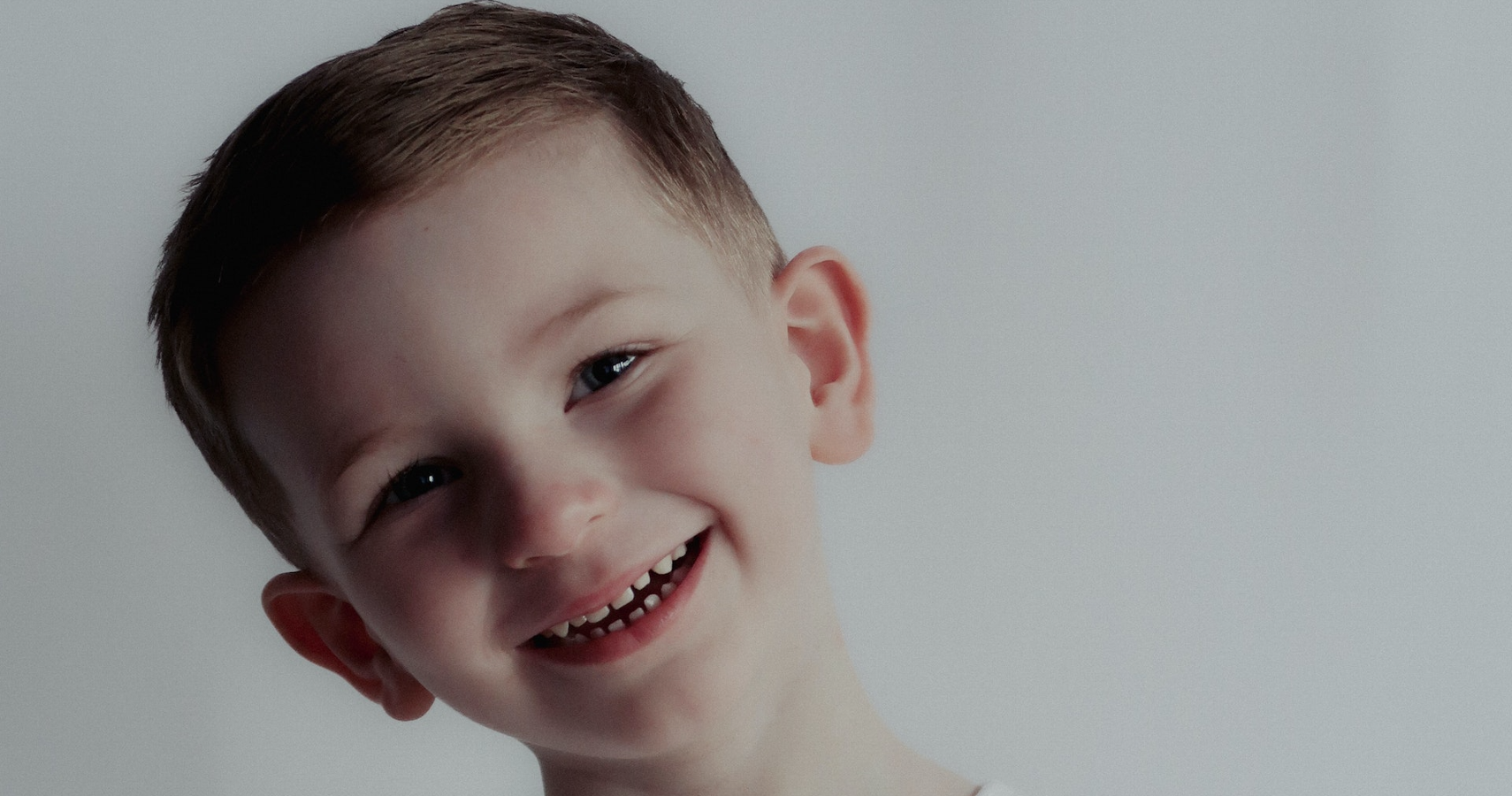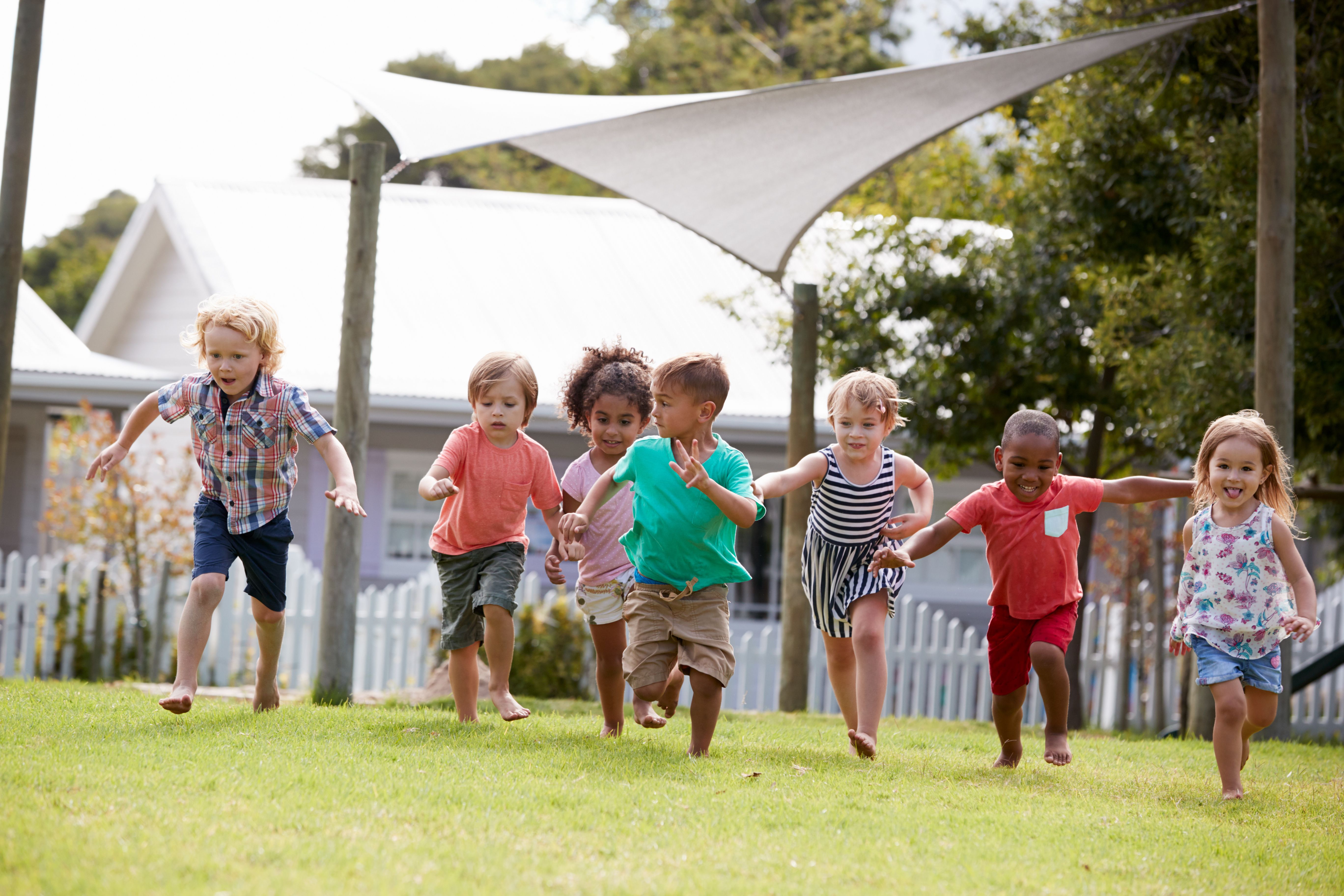Turning four is a completely different ballgame for any other age that has come before it. This is because kids this age are exerting the independence they have been taught, making friends, attending preschool and having fun, and hitting milestones unlike ever before. They truly are becoming their own people with distinct likes and interests. Making it necessary to know what makes four-year-olds tick with everything from their behavior to their developmental needs so that they can grow and thrive like never before.
Now that parents have made their way through the "terrible twos" and life with a "threenager," they may think that it is going to be some smooth sailing ahead when children turn four. The phrase "ferocious fours" would not have been invented if there was not a reason for it though.
According to Healthline, however, there is good news. The less desirable behavior that comes with this age also comes with times when four-year-olds act very mature for their age. And because of this, parents will constantly be switching gears to deal with little ones who want to be "demanding at times, cooperative at others." All of which is part of the fun that comes with transitioning out of toddlerhood and into childhood.
Here is everything that needs to be known about four-year-olds from behavior to developmental needs.
Four-Year-Old's Social & Emotional Skills
Most four-year-olds will find themselves in school for the first time. It may also be new for them to be around other kids on a consistent basis or have to follow the rules of an adult outside the family. These are all things that help build this population's social and emotional skills.
According to Healthy WA, social and emotional skills that four-year-olds are learning include:
- Empathy for others
- Ability to share toys
- Learning to take turns
- Have make-believe games where they take on the roles of real or fictional people
- Want to know what is happening with every moment of their day to feel secure
- Can be bossy with their friends
- May throw temper tantrums from time to time
- Are learning to be separate from Mom and Dad and not getting upset knowing they will return
- Are becoming quite funny and are grasping what humor is
- Behaviors may be larger than what the situation calls for
- May tell stories to "please" parents, not completely grasping what is real and what is pretend
The social skills that four-year-olds have are quite a bit different from what they have been in the past. With Mom and Dad no longer being their only source of companionship during the day, toddlers are learning how to interact with others and how their behaviors affect their friendships. Very important skills to be learned, indeed. Showing just how much four-year-olds have grown in such a short period of time.
Benefits Of Play For Four-Year-Old
Four years old is when kids begin to start playing with one another versus playing next to one another. Something that expands their world of play exponentially by having others to play off of rather than coming up with the imaginative play alone.
According to the American Academy of Pediatrics, the benefits of four-year-olds playing include:
- Helps with brain development
- Helps with body development
- Builds bonds with peers
- Helps kids to plan
- Encourages kids to organize
- Teaches kids to get along with others
- Puts regulating emotions into play consistently
- Helps kids deal with stress
- Allows them to work on their social skills
- Promotes working on language skills
- Builds a foundation for early math skills
Play is fun, but it is also necessary to help kids develop and thrive at this tender age. Without play, kids truly are at a disadvantage when it comes to their relationships with others, how they see the world, how they problem-solve, and how they work with others. These are all things that are not only necessary to be successful during childhood but adulthood as well.
Talking Skills Four-Year-Old Possesses
While parents may have thought that their three-year-olds were chatterboxes, that level of talking is nothing in comparison to how four-year-olds are able to talk and comprehend what is being said.
According to the Children's Hospital of Orange County, the talking skills that four-year-olds possess include:
- Put together four and five-word sentences
- Have more questions than parents know how to answer
- Can recite one or more colors
- Enjoys telling stories
- If foul language is spoken in the house, this is the age it will be repeated
The types of conversations that parents will be able to have with their kids once they reach the age of four are in-depth and likely fairly comical. Parents just need to be prepared to answer lots of questions because once they start, it takes quite a bit to get them to stop.
Four-Year-Old Motor Skill Development
Both gross and fine motor skills are coming along quite nicely for four-year-olds. They are becoming more meticulous about what they are working on, meaning that it may take more time to accomplish a task. But this extra time will likely mean the task at hand is being done correctly. And if it has anything to do with the artwork, it is neater than it has been to this point in children's lives.
According to Crane Schools, fine motor skills that four-year-olds are developing include:
- Can use a fork or spoon with ease
- Learning to tie shoes
- Tried to button, buckle, or lace clothing or shoes
- Ability to write their name
- Can draw shapes
- Coloring inside the lines is becoming more common
- Ability to hold a pencil correctly
- Can pour from a pitcher
- Cuts on a straight line continuously
- Can put together puzzles that are four to 12 pieces in size
By being able to do these tasks, four-year-olds are exerting their independence and are maturing by the day. All while astounding their parents with what they know on a daily basis.
Four-Year-Old Gross Motor Skill Development
Coming out of toddlerhood means that kids have had time to practice their balance, coordination, and memory skills. And because of this, there are some gross motor skill milestones that four-year-olds should be able to hit with no problem at all.
According to Stanford Medicine Children's Health, the gross motor skills that four-year-olds are developing include:
- Skipping and hopping on one foot
- Throwing a ball overhand
- Catching a ball overhand
- Walk down the stairs alone
- Build a tower out of blocks that are at least 10 blocks high
- Singing a song
- Working on learning the difference between reality and make-believe
These milestones would have never been attempted by three-year-olds or younger. They simply do not have the skills to do so. Making these activity milestones quite a big deal for four-year-olds to achieve.
Cognitive Skills Developed By Four-Year-Old
The cognitive skills that four-year-olds have are unparalleled to anything they have experienced in the past. This is because, at this ripe old age, kids are thinking, problem-solving, and exploring like never before to get the best understanding they can about the world around them.
According to Help Me Grow, the cognitive skills that are being developed by four-year-olds include:
- Ability to copy simple shapes
- Knows the difference between "same" and "different"
- Can follow two to three-step instructions
- Can count and may know several numbers
- Draws a person with detail
- Beginning to understand the concept of time
- Knows basic colors
- Can use scissors
- Can copy or trace letters
- Plays simple board and card games
- Able to state what happens next in a story
It is no wonder that four-year-olds are so interesting to talk to. Not only are they funny and curious, but they are also learning and absorbing everything they can in their sponge-like brains. Making this age group so much fun to be around and wonder what the world has in store for them.
Source: Healthline, Stanford Medicine Children's Health, Children's Hospital of Orange County, Crane Schools, Healthy WA, American Academy of Pediatrics, Help Me Grow


.jpg)

.png)


